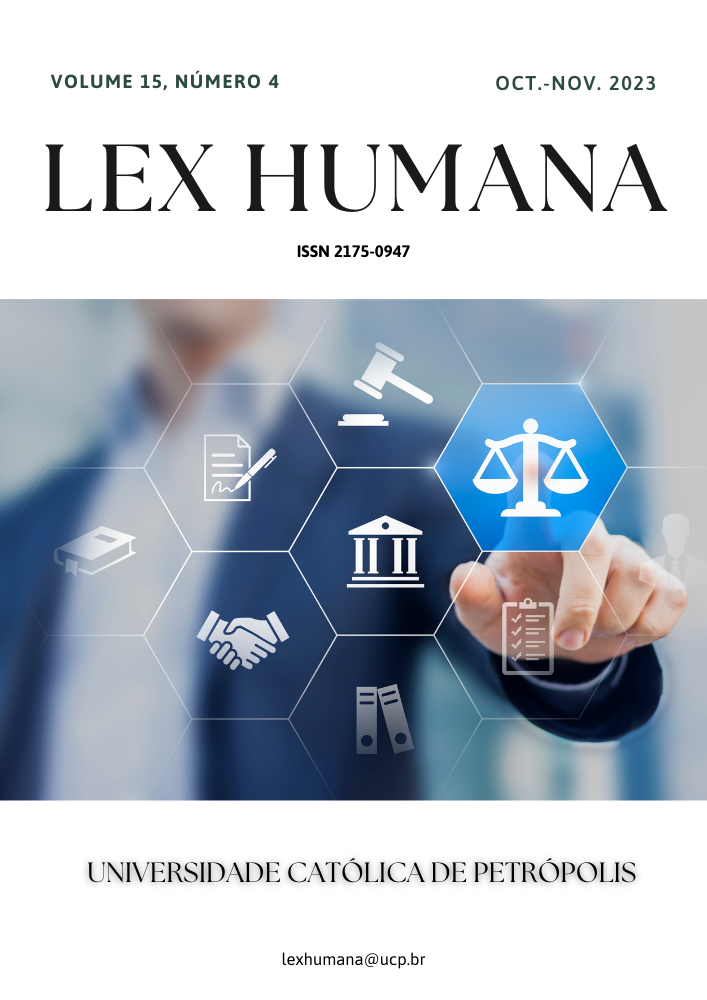Resumo
O presente estudo tem por objetivo analisar os problemas jurídicos resultantes do testamento obrigatório redigido por um avô ou avó para os seus netos ou netas após a morte do pai em vida. O problema do estudo reside no facto de, por vezes, o avô deixar uma grande herança e o filho morrer antes da sua morte; por conseguinte, os filhos e filhas do pai falecido não têm o direito legal de partilhar a herança do avô ao abrigo dos princípios da sharia islâmica. Por conseguinte, o presente estudo tem por objetivo dar resposta às seguintes questões O avô tem o direito de escrever um testamento que concede aos netos a parte do pai na herança, como se o pai falecido ainda estivesse vivo? Este tipo de testamento pode ser classificado como obrigatório? Ou é recomendável de acordo com a sharia islâmica? Quais são as condições que tornam este testamento obrigatório? Para responder a estas questões, o presente estudo baseia-se na metodologia descritiva, que consiste no estudo dos casos que passaram pelas condições de morte do pai antes da morte do avô, deixando filhos que não têm direito a herdar devido à sharia islâmica. A conclusão mais importante deste estudo é que o testamento é mais recomendável do que obrigatório e pode ser obrigatório se o governador der ordem para o tornar obrigatório.
Referências
Al-jasas, A. (1405 H). The Rules of the Quran. Dar Ihyaa Alturath Al-arbi.
Alzuhili, A.(1430H). Islamic Fiqh and its Evidence. Dar Al-fikr, Syria.
Alsuity, A.(1983). Al-ashbah wa alnazair. Dar Al-Qutab Alilmyiah, Cairo.
Al-Qurtbi, A.(1964), Collection of Quranic rules. Dar Al-Qutab Al-maysriah, Cairo,
Al-bahwati, M. (1968). Kashf Al-qin’a an matn al-iqna’a. Maktabt Al-nasr Alhadith, Riydh.
Al-kwhji, A.(1982). Zad Al-muhtaj bi sharh al-minhaj. Religious Affairs Publishing House, Qatar.
Al-Sarkhasy, M. (2020).Al-mabsut. Saadah Printing House, Egypt.
Al-rahili, W. (2011), Islamic Fiqh and its Evidence. Dar Alfikr, Syria.
Albukhary, Hadith 2738
Abdalsattar, M. (2020). Obligatory Will in the Egyptian Law. Journal of College of Arts. 31(122), 1-155.
Alzamli, A. (2015) The Provisions of Inheritance and Will and the right of transference in the Comparative Islamic Jurisprudence and Law. Islamic Library, Gaza.
Al-jezzery, A.(2004). Al-fiqh fi al-madhab Al-arbah. Dar Al-kutab Al-ilimyah. Cairo.
Abu Zahra, M. (2005). The Law of Personal Affairs. Dar Al-fikr Al-arbi, Cairo.
Dawood, A. (2009). The Rights relating to the Inheritance: Islamic Jurisprudence and Law.
Ibn Abdulbar, A. (1387H.) Al-tamhid. Ministry of Endowments, Morocco.
Ibn Almunzar, A. (2008). Al-igma.Dar Alfikr, Cairo
Ibn Othymin, A. (2012). The Interpretation of Riayd Al-salhin. Dar Altruath, Riydh.
Ibn Sa’di, A. (2020). Tayysir Al-karim Al-rahman fi tafsir kalam almanan. Alobykan, Riyadh.
Ibn Algawzi, A. (1422H). Zad Almasir fi ilm altafsir. Dar Al-qitab Al-Arabi, Beruit.
Ibn Mifleh, A. (2003). The Correction of the Branches. Al-risala Publishing House, Beirut.
Ibn Al-munzar, M. (2005). Al-igma. Dar Almuslim, Cairo.
Ibn Qudama, A. (1969) Al-mughani. Cairo Publishing House, Cairo.
Ibn Hazm, A. (2013). Al-mahali. Dar Ibn Kathair, Cairo.
Ibn Rushd, M. (1994). Bidayt Al-mujtahd wa nihyat al-muqtsad. Maktbat Ibn Tayymiah, Cairo.
Sunan Abi Dawud 2862

Este trabalho está licenciado sob uma licença Creative Commons Attribution-NonCommercial-NoDerivatives 4.0 International License.
Copyright (c) 2023 Lex Humana (ISSN 2175-0947)

